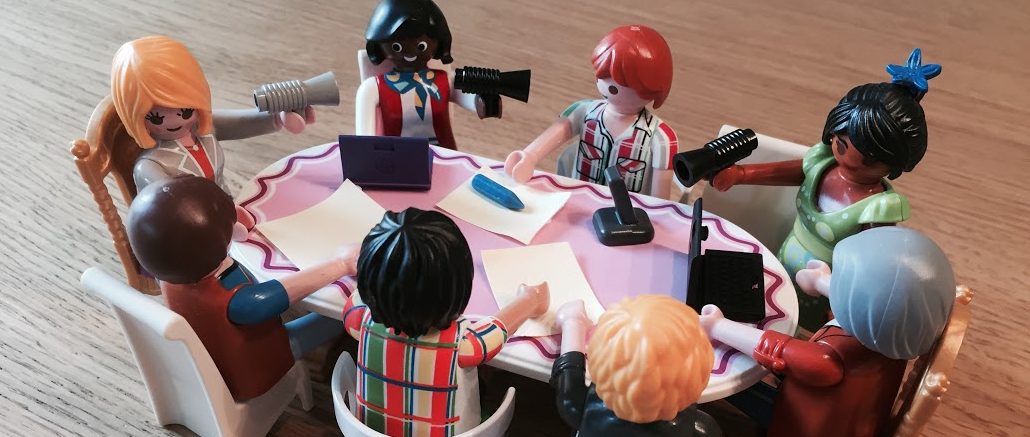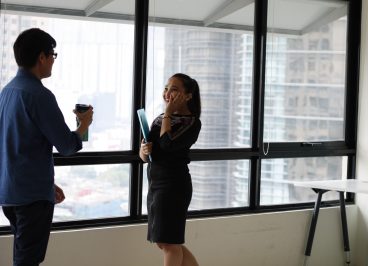What leadership tool is most often overlooked?
Apparently, listening is. Though, when it is done well, it can create safety in the ever-changing working environment of new teams forming, employees leaving and entering the organisation, projects shifting priorities, etc. So, what helps anchoring this instable working environment? Focus on things we can control, instead of what we cannot control, like time spent listening to the other.
In her Harvard Business Review article, Melissa Daimler sums up some scientifically gathered facts about listening. We spend between a third to half our time listening and we don’t remember very much of it. Back in the 50s researchers found that listeners only retain about half of what has been said immediately after the conversation. I wonder what would remain of that quantity today.
Listening is a challenging skill to master in this extraverted world where the loudest voices are heard first. In my coaching sessions, I often illustrate the 3 types of listening Melissa discerns:
- Internal listening: when you pretend you’re engaging with the other person whilst checking your messages on your phone or laptop, being occupied with your own thoughts, worries and priorities.
- Focused listening: you engage with the other person, your phone is down, laptop aside, you are nodding in agreement, but you are not fully present. You are still elsewhere in your mind and you miss every nuance in the conversation.
- 360° listening: this is where you take time to fully connect. You’re not just listening to what the person is saying, but also how he is saying it and even better – what he is not saying: what topics give him energy, which don’t, and where the person pauses when speaking.
“Listening creates spaciousness, which we need to do good work,” Melissa continues. But how can you listen more? What conditions advocate listening?
- Eye contact: look people in the eye. Don’t stare at your phone or laptop or glance outside the window. And smile.
- Create space in your day: Melissa experiences that she listens more when she creates space in her day. So, manage your calendar and stop booking yourself out the entire day. Giving someone your undevided attention is absolutely priceless (not just in the office).
- Ask more questions: most employees just want you to either affirm their line of thinking, or need a sounding board to be challenged for more solutions. So, first be sure to understand the situation and then, instead of giving advice, try asking several questions. Simultaneously, you are coaching your staff towards more confidence and autonomy.
Unfortunately, there is no black and white solution for all situations. There will always be exceptions. But next time you are talking, ask yourself: “Am I really listening, or just waiting for my turn to speak?” Perhaps you can pause to squeeze in a question instead of your advice or opinion. Try it!
Source: Harvard Business Review
 Call me at +32 473 80 13 24
Call me at +32 473 80 13 24














